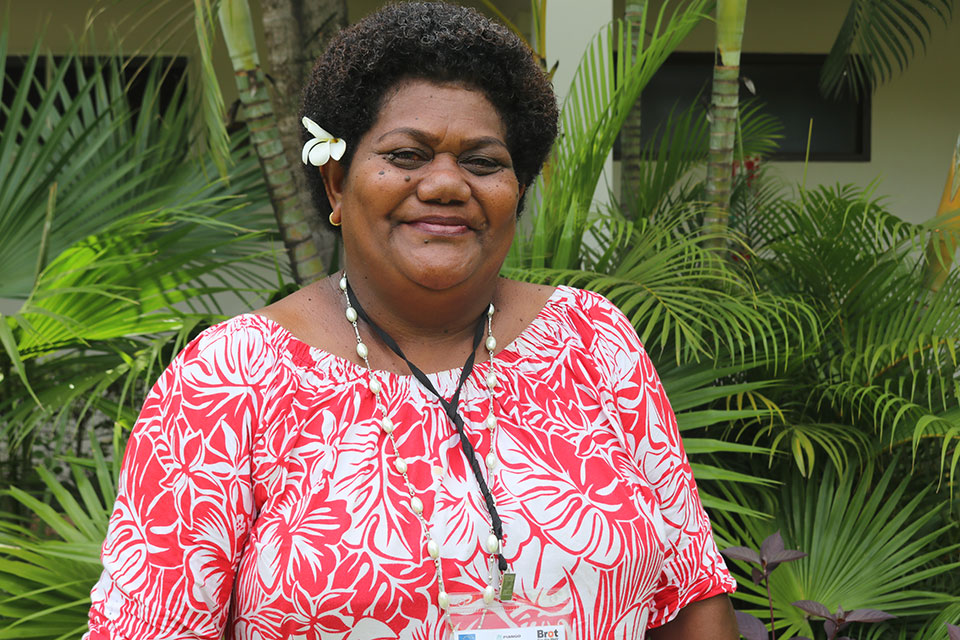In the words of Vani Tuvuki, “We are real agents of change in our communities”
Vani Tuvuki is the Chair of the District Council of Social Services in the District of Ba, located in the Western part of Fiji. She is also a board member in the National Executive Committee for the Fiji Council of Social Services (FCOSS). She performs both roles in a volunteer capacity and works tirelessly and passionately to support her community.
Date:
Interviewer: Lydia Hollister-Jones


"I started my journey as a teacher, teaching Home Economics and Basic Science. Then I got sick. I was diagnosed with cancer. When I got well, I woke up one day and I said I needed to do something much greater than what I am doing now. God has given me a life, what can I give to the community and to God himself? I wanted to show the love he has shown me... to the community.
I joined a few non-governmental organisations that involved income generating activities for women. I did a counselling course at USP (University of the South Pacific), I went to join Fiji Women’s Crisis Centre as a counsellor and an advocate in the community. I was seeing the struggles in my community and the district at large, and that the response was coming to them very late. I decided to help in trying to look for solutions to the issues that we face in the community. Especially those that were faced by women and children.
I needed more information around different genders, different people that live within the community, and what I could get to be able to help them during disasters and during the preparedness phase. Most of the moulding years for me were done through the rural women leaders’ platform. We were trained on human rights and gender policies.
I took what I had learned from the women’s platforms, the feminist platforms, and the knowledge that I had, and I knew I could be an instrument in humanitarian work. Now, I’m a first responder, and a rural woman leader in the community. We are able to empower other women. In the rural women’s leaders meeting, in these kinds of platforms, and in our DRR (disaster risk reduction) platforms, we are able to encourage each other.
Every piece of information that comes to us as women leaders, we share it with other women. We know that women share information with their families. All the women out there I know are also trying to share food, trying to share stationery, trying to share clothes with those who have been affected directly by disasters.
Who are the first responders? Women. Women look at their neighbours, and they take whatever extra things they have, and they take it to them. They take it to the community at large and to their district. Who is concerned about the welfare of the LGBTQI+? The women. Who voices out for those with disabilities? The women. It’s in our system to help. It’s in our system to respond when there’s nothing coming from outside.
To all the women out there, please stand up for your communities, stand up for your families. We are different. We are real agents of change in our communities. If we stand up, hold hands together, and support each other, we will make a difference in the community.”
Vani shared her experience and leadership journey, speaking at a workshop that centred around celebrating local women leaders in disaster resilience, organised by FCOSS in partnership with the Women’s Resilience to Disaster Programme (WRD). WRD, supported by the Australian Government and implemented in the Pacific by UN Women and its partners, works in partnership with NDMO to strengthen women’s leadership in response to disasters.